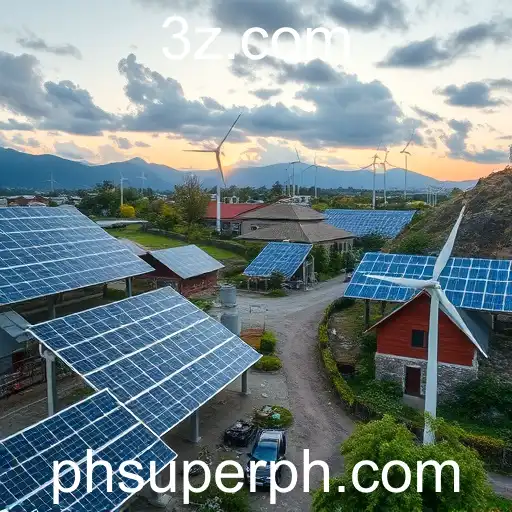
In recent years, the global shift towards renewable energy has gained unprecedented momentum, driven by technological advancements and increasing concerns over climate change. As we progress into 2025, the energy landscape is rapidly transforming, paving the way for sustainable practices and innovative approaches to meet rising energy demands. However, this transition is not without its challenges, particularly in the realm of policy regulation and implementation.
A significant driver of this energy transformation is the need to combat climate change. With governments worldwide pledging to reduce carbon emissions, renewable energy sources such as solar, wind, and hydroelectric power are taking center stage. These sources offer a cleaner, more sustainable alternative to fossil fuels, which have long dominated the global energy sector. Yet, the shift towards renewables is also creating new dynamics that necessitate robust policy frameworks to ensure a seamless transition.
One of the primary challenges in this regard is the need for comprehensive regulatory policies that facilitate the integration of renewable energy into existing energy infrastructures. Policymakers face the daunting task of balancing the rapid deployment of new technologies with the stability of energy grids, which were predominantly designed for fossil fuel-based generation. The development of smart grid technologies and energy storage solutions is crucial to overcoming this hurdle, ensuring that renewable energy can be reliably distributed and utilized across regions.
Moreover, economic considerations play a pivotal role in this transition. While the cost of renewable energy has dramatically decreased in recent years, thanks to technological innovations and economies of scale, initial investments remain substantial. Governments are tasked with creating incentives that encourage private sector investment in renewable technologies, such as tax breaks, subsidies, and renewable energy credits, which can accelerate the adoption of clean energy solutions.
Aside from economic and regulatory challenges, the social implications of energy transitions cannot be overlooked. The shift to renewable energy comes with the promise of job creation in manufacturing, installation, and maintenance sectors. However, this promise also entails a re-skilling of the workforce currently employed in the fossil fuel industry. Governments and educational institutions must collaborate to provide training programs that equip workers with the skills needed to thrive in a green economy.
In summary, the rise of renewable energy presents an opportunity to address climate change while fostering economic growth. However, the path forward requires careful navigation of policy challenges, economic considerations, and social implications. As we witness this energy revolution unfold, the collaboration between government entities, private enterprises, and civil society will be paramount in achieving a sustainable future.


